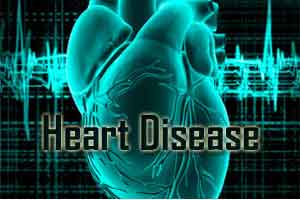- Home
- Editorial
- News
- Practice Guidelines
- Anesthesiology Guidelines
- Cancer Guidelines
- Cardiac Sciences Guidelines
- Critical Care Guidelines
- Dentistry Guidelines
- Dermatology Guidelines
- Diabetes and Endo Guidelines
- Diagnostics Guidelines
- ENT Guidelines
- Featured Practice Guidelines
- Gastroenterology Guidelines
- Geriatrics Guidelines
- Medicine Guidelines
- Nephrology Guidelines
- Neurosciences Guidelines
- Obs and Gynae Guidelines
- Ophthalmology Guidelines
- Orthopaedics Guidelines
- Paediatrics Guidelines
- Psychiatry Guidelines
- Pulmonology Guidelines
- Radiology Guidelines
- Surgery Guidelines
- Urology Guidelines
Mental stress may cause reduced blood flow in hearts of young women with heart disease: Study

Dallas : Younger women with coronary heart disease and mental stress are more susceptible to myocardial ischemia (reduced blood flow to the heart muscle, which can lead to a heart attack), compared to men and older patients, according to new research in Journal of the American Heart Association, the Open Access Journal of the American Heart Association/American Stroke Association.
Coronary heart disease is a leading cause of death in American men and women, but studies show that younger women have higher rates of complications and death after a heart attack compared to their male counterparts.
“Younger women tend to have quite a lot of stress in their lives. Many of them have full-time jobs and at the same time have numerous responsibilities at home; financial hardship, as well as depression and anxiety which are common in this group,” said Viola Vaccarino, M.D., Ph.D., lead study author, professor and chair of the department of epidemiology at Emory University in Atlanta, Georgia. “Clinicians should ask about stress and emotional difficulties in these patients and recommend ways to help, such as finding time to relax and exercise.”
The Mental Stress Ischemia Mechanisms Prognosis study included 686 patients (191 women) between 34 and 79 years old with coronary heart disease. Patients underwent imaging tests, meaning researchers took pictures of their hearts before and during mental stress, and then examined changes in blood flow between men and women with age as a factor.
They found stress-induced, reduced blood flow:
- happened more often in younger women compared to men and older women;
- occurred in 33 percent of women age 50 years old or younger compared to 8 percent of men of similar ages; and
- the difference between men and women decreased with age and disappeared in older patients. The frequency of reduced blood flow almost doubled in women compared to men for every 10-year decrease in age.
“Our findings suggest that women with heart disease in their 30s, 40s and early 50s are more vulnerable to the damaging effects of psychological stress on their heart,” Vaccarino said.
Researchers said their study is limited by the relatively small number of younger women involved and that further studies are needed to confirm the clinical significance of mental stress-induced heart attacks in women.

Disclaimer: This site is primarily intended for healthcare professionals. Any content/information on this website does not replace the advice of medical and/or health professionals and should not be construed as medical/diagnostic advice/endorsement or prescription. Use of this site is subject to our terms of use, privacy policy, advertisement policy. © 2020 Minerva Medical Treatment Pvt Ltd